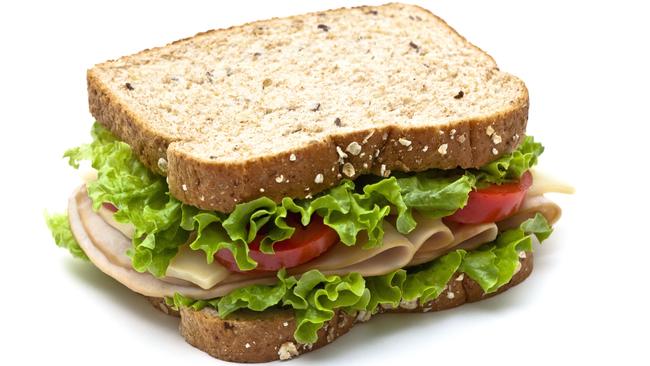Caring for elderly parents, and your kids? Welcome to ‘Generation Sandwich’
With ageing parents and adult kids requiring support for longer many of us are finding ourselves aged 50 and being squeezed into caring for two generations of family.

They are the so-called “sandwich generation” filling the middle-age void between youth and old age. Generally this time in the life cycle extends across the fifties, but it can start in the forties and linger into the sixties.
For years, the fiftysomething phase in the life cycle was a time of quietly wafting towards the dotage of old age. Parents had died long ago in their late sixties, and adult kids in their twenties had already met and married their life partner and bought a home. Back then the fifties was a time when your grandchildren began to arrive. Today, it’s a different world.
Over the past half-century life expectancy in Australia has pushed back from the late sixties to the mid eighties. Parents are living longer and often require support in old age. In many cases this support is provided by family members in their fifties living within convenient driving distance. Often the primary carer is the daughter or the daughter-in-law who juggles work with visits that invariably involve cups of tea and endless chat about family members. Managing elderly parents is a dividend of our modern world. And so too is the concept of the sandwich generation.
At the other end of today’s fiftysomething world is the need to provide support for kids through schooling, training, jobs and occasionally the rollercoaster world of modern relationships. And into this mix we can toss financial pressures like weddings and the need for support to buy a house (via the bank of mum and dad).
Of course, many of these duties have always been the responsibility of parents. But in our modern world the time-frames, the costs and the pressures of life have all stretched and intensified. Ageing parents and adult kids require familial support for longer. Not in all cases, but in a sufficient number for the concept of the sandwich generation to resonate.
According to the most recent Census, the time in the life cycle when most Australians provide unpaid care for others is the age of 58. Thereafter unpaid care subsides, presumably because parents (then in their late eighties) pass away. Grief can affect us all but, apart from a surviving life partner, it is most intensely felt by many within the sandwich generation.
I have spoken to groups about the concept of intrafamily care and support (as measured by the Census) and the feedback I hear is that many fiftysomething carers get such meaning out of helping someone in life’s final stages that they seek out volunteering opportunities in their sixties.
But the pathway through the sandwich generation years isn’t always smooth. Here is a time when relationship breakdown can throw a spanner in the works of caring for parents and for parents-in-law. Here is a time when health issues can surface in otherwise healthy fiftysomethings, perhaps worsened by the stress of always managing the interests of others.
Families are precious institutions that must change and evolve with the circumstances. They lie at the core of our care ecosystem. The sandwich generation has emerged as a linchpin of modern family life. The beauty (and the democracy) of the sandwich generation is the fact that eventually everyone gets a turn at being the filling in the sandwich.







To join the conversation, please log in. Don't have an account? Register
Join the conversation, you are commenting as Logout